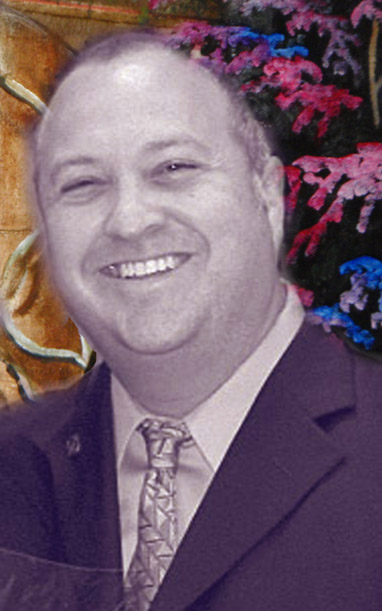CALIFORNIA MUST PREPARED FOR AN EMERGING EPIDEMIC: |
|
ALZHEIMER'S DISEASE IN THE LATINO COMMUNITY IS REACHING A CRISIS LEVEL
...Large numbers of Hispanic elders – particularly the old-old who are most at risk of Alzheimer’s -- are first generation immigrants who are not necessarily comfortable in English or trusting of a health care system. 54% of Cubans, 46% of Puerto Ricans, 28% of Mexican Americans, and 25% of other Hispanics in the U.S. have limited English language skills.22 The lack of Spanishlanguage ....Currently, there are more than 42,000 Hispanic elderly adults in San Diego County, and with an estimated one in ten over age 65 with dementia, there are currently more than 4,000 Hispanic families coping with Alzheimer’s and related dementia. Aggravating this problem is the fact that many Latinos believe that dementia and Alzheimer’s disease are simply normal consequences of aging, and they tend to care for their elderly at home instead of placing them in assisted living, causing families to deal with the illness on their own terms, oftentimes unaware of support and services that are available. ...“Studies suggest that Latino individuals are at a three times greater risk for developing dementia due to increased risk of cardiovascular diseases – including stroke and diabetes. By 2050 the number of Latino elders suffering from Alzheimer’s and related dementias could increase more than six-fold. In San Diego County, it is estimated that the number of people with Alzheimer’s could be as high as 90,000; and within the next 3 years, as Baby Boomers begin turning 65 years old, the number of people with Alzheimer’s will increase dramatically.” said Roberto Velazquez Vice President of Programs, Alzheimer’s Association San Diego/Imperial Chapter. Since Alzheimer’s disease has a big impact on family life, it is important for the entire family to get information about Alzheimer’s and dementia as soon as possible, and to understand what resources are available to help the family coping with Alzheimer’s disease. Helping Hand for The Hispanic Families Living with Alzheimer’s: “El Portal de la Esperanza” .... To address the concerns of local Hispanic families, The Alzheimer’s Association is sounding the alarm about dementia in Hispanic/Latino communities, not to cause panic but to stimulate action to prevent disaster. Alzheimer’s disease is no longer a hopeless cause. By mobilizing public and private resources in a campaign to fight Alzheimer’s, and by enlisting Hispanic/Latino communities in that campaign, we can change the course of Alzheimer’s for families who are now at risk. ....The Alzheimer’s Association San Diego/Imperial Chapter is a nonprofit 501 (c)(3) voluntary health organization whose mission is to eliminate Alzheimer’s disease through the advancement of research; to provide and enhance care and support for all affected; and to reduce the risk of dementia through the promotion of brain health. The chapter provides a number of free services to help individuals and professionals more effectively cope with Alzheimer’s disease. Services include support groups, educational seminars,free 24-hour Helpline 7 day a week, available in 140 languages, a research library, Care Consultations, MedicAlert ®, Safe Return® and Memories in the Making™ art programs. Today, as many as 5.2 million Americans are living with Alzheimer’s disease, the seventh leading cause of death in the country and the fifth leading cause of death for those over age 65. The Association’s report offers numerous statistics that convey the burden Alzheimer’s imposes on individuals, families, government, business, and the nation’s health and long term care systems. The Alzheimer’s Association San Diego/Imperial Chapter is a nonprofit 501 (c)(3) voluntary health organization whose mission is to eliminate Alzheimer’s disease through the advancement of research; to provide and enhance care and support for all affected; and to reduce the risk of dementia through the promotion of brain health. The chapter provides a number of free services to help individuals and professionals more effectively cope with Alzheimer’s disease. Services include support groups, educational seminars, free 24-hour Helpline 7 day a week, available in 140 languages, a research library, Care Consultations, MedicAlert ®, Safe Return® and Memories in the Making™ art programs. For more information visit www.sanalz.org or call 1-800-272-3900. |
|
|
|
|
|
|
Bienvenido a la primer revista dedicada al cuidado de la salud
 info
info
The first, the best & the only English & Spanish Magazine in San Diego, California
|
|
| .>> EN ESPAÑOL | |
MORE ARTICLES |
|
|
|
|
|
|
|
|
|
ALZHEIMERS AND CAREGIVING? |
|
|
|
|
|
|
|
What Family Caregivers |
|
|
|
|


 under the umbrella of Alzheimer's Association, El Portal de la Esperanza will be presenting a series of programs for Latino caregivers during May, which is Hispanic Alzheimer's Disease Awareness Month. Every year during May, Latino individuals caring for someone with dementia can attend free, Spanish-language programs in the South Bay. The programs will cover a range of topics including Living a Brain Healthy Lifestyle, Depression and Caregiver Stress, Driving & Dementia, Medical Advancement in research, and memories in the making program. Locations and time are listed in Spanish can be found at sanalaz.org
under the umbrella of Alzheimer's Association, El Portal de la Esperanza will be presenting a series of programs for Latino caregivers during May, which is Hispanic Alzheimer's Disease Awareness Month. Every year during May, Latino individuals caring for someone with dementia can attend free, Spanish-language programs in the South Bay. The programs will cover a range of topics including Living a Brain Healthy Lifestyle, Depression and Caregiver Stress, Driving & Dementia, Medical Advancement in research, and memories in the making program. Locations and time are listed in Spanish can be found at sanalaz.org